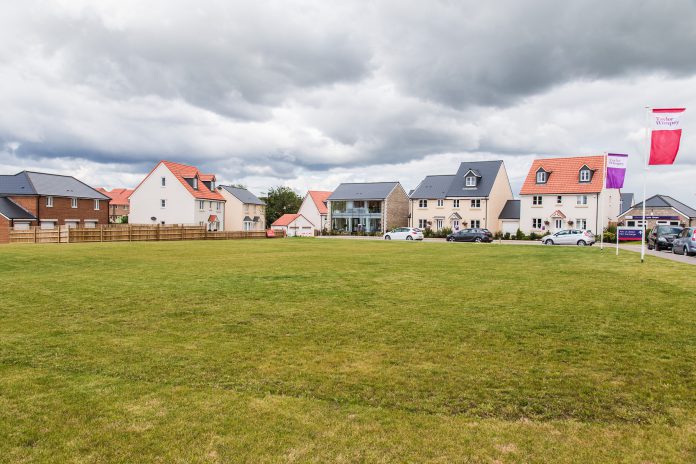All members of the public, young and old, are being encouraged to help inform proposals for growth in the region that will affect everyone for at least the next generation. People across the West of England are being invited to make further contributions to the development of the West of England Joint Spatial Plan (JSP) and Joint Transport Study (JTS), with consultation launched today and running until 19 December.
The four West of England councils – North Somerset, Bristol City, South Gloucestershire and Bath and North East Somerset – are developing the new plans in response to the acute need to deliver new homes and improved infrastructure, which will be required if the region is to meet the housing shortfall, continue to create jobs and balance the demands for more development with the infrastructure.
It is anticipated that we could need up to 105,000 new homes across the region between now and 2036. Around 66,000 new homes have already been planned for as part of each councils’ existing Core Strategies. The JSP aims to identify where the shortfall of up to 39,000 could be built in a joined-up and sustainable way. New homes growth will need to be matched with improved infrastructure – including transport, road links, and community facilities – not only to meet existing demand, but so that new development does not have a negative impact in existing communities.
The JTS presents a ‘transport vision’ for the West of England that includes up to £7.5billion in infrastructure investments over the next 20 years and it is expected that both new and existing sources of funding will need to be identified to help deliver these plans.
The transport vision combines projects that will provide real choices for travel and promote walking, cycling and new technology to move around. Key routes are also identified where different forms of transport can work alongside each other and provide a real alternative to private, often individual car journeys. The JTS presents a series of packages focussed on existing and projected developments, which are designed to make travel – whether for business and commuting, moving freight or for family trips – quicker, simpler and more environmentally sustainable.
The four councils have agreed to work together to prepare the JSP and JTS so that planning can be co-ordinated at a strategic level, although each council will retain responsibility for approving proposals in keeping with local priorities.
Last year the four councils ran a consultation process to get public input to help set the approach and priorities for these plans. Comments and ideas were received from a wide range of individuals as well as other stakeholders, including businesses and transport providers.
Having taken account of the consultation feedback, this next step is to seek feedback on outline proposals that could deliver the required growth in a positive way. The outline proposals in the JSP and JTS consultation would allow the West of England to address the following priorities:
- Respond to the housing shortage – both now and in the future, building on feedback from the first consultation, we want to ensure we can house future generations in their region
- Invest in new infrastructure – to support increased demand from growing communities such as integrating housing and employment with transport to reduce the length and numbers of journeys to work
- Support economic growth and improve levels of prosperity – creating new jobs
- Prioritising development on brownfield sites – rejuvenating existing derelict land and protecting the green belt
- Any new development must take account of the need to protect a high-quality environment
- Help fulfil the councils’ legal duty to cooperate under the National Planning Policy Framework.
In a joint statement, the Leaders of North Somerset Council, Nigel Ashton, South Gloucestershire Council, Matthew Riddle, Bath and North East Somerset Council, Tim Warren and the Mayor of Bristol City Council, Marvin Rees, said: “Across the West of England we need more homes, jobs, schools, and transport infrastructure. However, we face a challenge; trying to provide these facilities and services for our growing population whilst ensuring our region’s economic development and the natural environment, which is such an important part of our area’s attraction, is protected and enhanced. We can succeed if we work together in planning jointly to tackle these challenges. This is where you come in.
“Our four authorities want to work with the public to create a plan, a Joint Spatial Plan. This will map out how the West of England will develop, progress and thrive, over the next two decades. Where possible we want to focus the development within our urban areas.
“We also want to make sure we have the right transport provision, easing congestion and supporting further growth. The Joint Transport Study will ensure all the dots are joined up, by creating a coherent and sustainable plan for the transport needs for the future of the area.
“No decisions have been made yet, that’s why, as you care about the places you live, we want you to make your voices heard. From November 7th to the 19th of December, we are inviting your feedback on the emerging Joint Spatial Plan and the Joint Transport Study.
“Once we have taken a close look at all your feedback, the final plans will be used to help shape each individual authority’s plans so that we can build the future together.”
The consultation process is due run until 19 December 2016. Details of the current proposals, illustrations of potentially affected areas, the consultation forms and a short introductory animation about the plans, are available at our website: www.jointplanningwofe.org.uk
There will also be a series of local engagement events in each authority area where residents will have the opportunity to hear more details and ask questions of our transport and planning officers.









